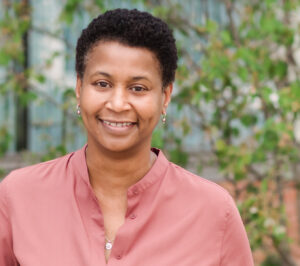Professor Pamela R. Bennett, School of Public Policy

“My research is devoted to interrogating questions regarding social inequality between racial, ethnic, immigrant, and social class groups in the domains of education and residential segregation, given that both are mechanisms for reducing or exacerbating inequality in the United States. The education strand of my research asks questions about access to and use of institutions of higher education, particularly selective colleges and minority-serving institutions, respectively. Among the questions on the docket for the Supreme Court’s upcoming term is whether Harvard University’s use of affirmative action in admissions is unconstitutional. My collaborators and I have and continue to investigate how changes in affirmative action, which were prompted by prior Supreme Court decisions, have affected the application and enrollment decisions, academic performance, and chances of graduation among black, white, Latinx, and Asian American high school graduates, with an eye toward group disparities. Along with federal-level efforts to dismantle affirmative action are ones that have taken place at the state level. Therefore, we have also investigated the consequences of state bans for prospective students’ application and enrollment decisions. Our most recent study, in press at the Harvard Educational Review; suggests that although state bans on affirmative action do not discourage applications to selective colleges by black and Latinx high school graduates, they tend to encourage applications from their white and Asian American counterparts who already account for most students at elite institutions.

Beyond consequences to changes in affirmative action, I study the relationship of black and Latinx students to minority-serving institutions, particularly whether and how they use such institutions to achieve social mobility. Lastly, I am studying (with a collaborator) the relationship between the separately-evolved scholarships on residential segregation and gentrification, both of which negatively impact the well-being of minoritized groups. Although the two literatures share concerns about how urban processes shape neighborhoods and the lives of residents, initial signs suggest little engagement, which may limit both our understanding of how these spatial processes interact to generate racial and ethnic disparities in a host of socially-important outcomes, as well as what to do about it.”

[Photo credits: Marlayna Demond ’11]